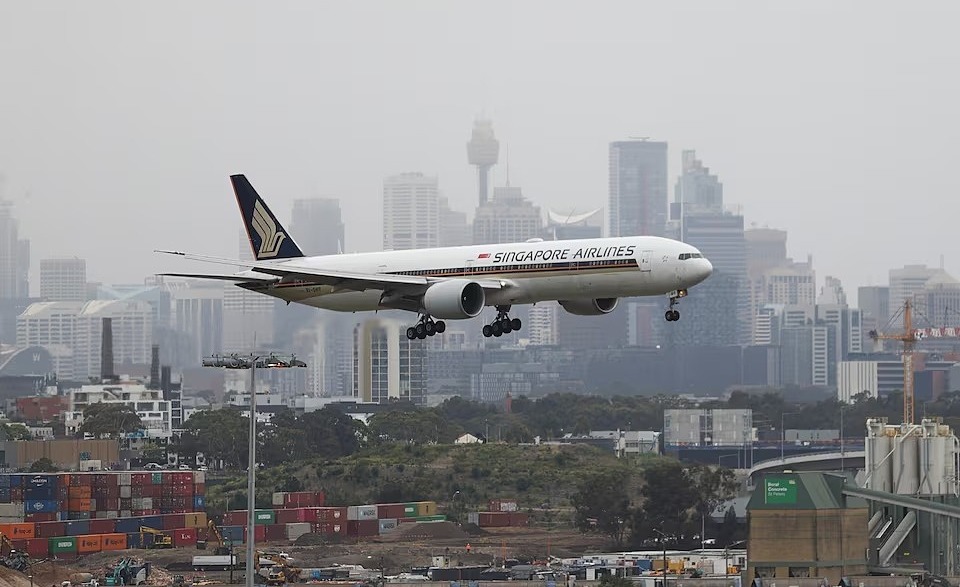
Various carriers throughout Asia have revised their guidelines regarding the transportation of lithium batteries on board aircraft. These batteries are found in items like mobile phones and vape pens, and they pose a risk because they can catch fire, emit smoke, or generate excessive heat when faulty.
In 2024, global statistics from the U.S. Federal Aviation Administration revealed an average of three instances every two weeks of overheating lithium-ion batteries on airplanes. This is up from approximately one incident per week in 2018.
The aviation industry has consistently viewed batteries as a safety issue, leading to periodic rule enhancements following various incidents.
Airlines in South Korea
In January, an Air Busan aircraft burst into flames as it prepared for departure from South Korea. Although investigators have yet to release their official report on the incident’s cause, the transportation ministry stated on March 14th that a power bank might be responsible for the blaze.
Air Busan was the first to modify its rules prohibiting the placement of power banks in overhead cabin compartments, advising passengers instead to carry them personally for easier detection of any issues.
From March 1 South Korea tightened rules for all South Korean airlines, including keeping power banks and e-cigarettes with passengers and not in luggage bins, and not charging devices onboard.
Singapore Airlines and Scoot
On March 12, Singapore Airlines—encompassing its budget carrier Scoot—informed passengers that starting April 1, they will no longer be permitted to utilize the USB ports for charging portable power banks or use these power banks to charge their electronic devices during flights.
The airline told Reuters It frequently revisits in-flight protocols and rules, with safety being the company's utmost concern.
Air Astana
Starting March 13, Kazakhstan’s Air Astana banned charging power banks or using them to charge other devices during flights. The airline also stated that lithium batteries, external batteries, and electronic cigarettes should be carried in carry-on baggage and stowed in overhead compartments.
EVA Air
Taiwan's EVA Air prohibited charging and using power banks and spare lithium batteries on flights starting on March 1.
It is recommended that most airplane seats come with USB power outlets for passengers who need to charge additional devices.
China Airlines
Starting March 1st, Taiwan’s China Airlines stated that using or charging power banks and extra lithium batteries will not be permitted during flights. The airline also advised travelers against keeping power banks in the overhead compartments.
Thai Airways
As of March 15, Thai Airways has banned the usage and charging of power banks and portable batteries during flights.
Malaysia Aviation Group (MAG)
The parent company of Malaysia Airlines, MAG, announced that starting April 1st, power banks will be banned from being carried in the overhead compartments. They stated, "While flying, these devices should instead be kept in your carry-on luggage beneath the seat or within the compartment in front of you."
Magnetic wireless power banks should be stored in their own pouch, and both charging and use of power banks will not be allowed during flights.
Batik Air
Starting from March 14, passengers traveling with Indonesia’s Batik Air, which is part of the Lion Air Group, will no longer be allowed to use power banks during flights. However, they can carry up to two power banks in their personal possession rather than storing them in overhead compartments.
The airline stated, "Travelers should be cautious when bringing auto-magnetized charging power banks, as they might present extra hazards."
China
The Chinese aviation authority has stated since at least 2014 that charging devices with power banks during flights is not allowed.
IATA guidelines
Airlines typically adhere to the guidelines for lithium batteries outlined in the IATA Dangerous Goods Regulations. These regulations stipulate that power banks should be transported as carry-on luggage rather than in checked bags, and they also establish limitations regarding the quantity and voltage of batteries allowed.
The European airline group Lufthansa stated that they follow the IATA guidelines, which remain unchanged.
The IATA did not promptly reply to requests for comments.
Air India mentioned that they frequently review their policies in response to industry developments and regulatory suggestions.
A spokesperson stated, 'Given that changes from the present practices might bring about new risks and there isn’t a definitive agreement on the optimal method, the policy of Air India continues to remain unaltered for now.'


No comments:
Post a Comment